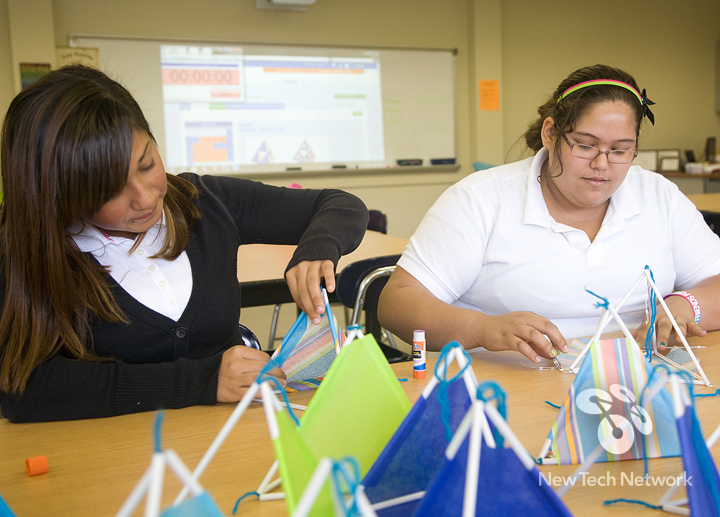While the word assessment in education conjures up images of testing, its Latin root, assidere, means “to sit beside.” This raises a provocative question: In this era of high-stakes testing that’s used to rank kids and schools, what if we reclaimed the word assessment and put it more authentically in the service of learning?
Going a step further, what if we connected educators who are passionate about deeper learning with a coalition of technical assistance providers and researchers, surround them with resources and tools so that they can develop new forms of assessment as a learning community of grantees?
Recently, I met with the Assessment for Learning Project, a group of leaders who are catalyzing innovative approaches to assessment that encourage observing, collecting and interpreting evidence of deeper learning. They are inspired by the belief that any form of assessment “worth its salt,” as one teacher put it, “should also be an occasion for learning.”
Each pilot project within this group aims to build a new type of formative assessment that teachers and students can use to get feedback during instruction, so that they can adjust their teaching and learning accordingly. This group is also developing a series of “proof points” that would allow these assessments to scale beyond particular local contexts, geographies or school systems.
What would that look like in practice? Here are a few things being tried by the Assessment for Learning Project leaders.
The Center for Collaborative Education in Boston is working with Rhode Island teachers to design and implement complex, deeper learning tasks that require students to demonstrate mastery of key skills.
In contrast to a fill-in-the-bubble-sheet test, these tasks ask students to engage in real-world work like carrying out an investigation or constructing an argument based on primary sources. The most exciting part of this project is how participating teachers are trained to use the new assessments. Designed to “walk the talk” of competency-based assessment, the project’s teachers must first demonstrate competencies in three stacks of “micro-credentials” and they must present those skills to their peers.
Two Rivers School in Washington, D.C., students embark upon two expeditions each year. Their teachers guide them in a project-based learning experience that challenges students to interact with science or social studies curricula in non-traditional and exciting ways.
For example, second-graders learn about the physics of flight by exploring gravity, and then make recommendations to the Smithsonian National Air and Space museum for a child-friendly exhibit. Fifth-graders learn about American history by studying protests, and then draft recommendations for the D.C. public charter school community in response to funding concerns. Two Rivers is developing performance assessments to better understand how and if students are able to transfer the skills and habits they use in these learning expeditions to new tasks.
The California Performance Assessment Collaborative is launching an official state pilot where schools and districts develop, test, and share learning about high-quality graduation performance assessments that can serve as a viable alternative to California’s high school exit exam (a now suspended test of basic skills.) Learning within the pilot will occur on three levels:
- Current practitioners – those already engaged in performance assessment
- Emerging learners, those at the beginning or expansion stages of performance assessment implementation
- Observers, those interested in learning closely with the collaborative
At Envision Schools, for example, students assemble a portfolio of their best work, which they must defend, dissertation-style, in front of an audience of educators, peers, and community members. Students must present a defense of their work at the end of 10th grade, and, for seniors, passing the college success portfolio defense is a graduation requirement.
The center of gravity of Assessment for Learning Project is its learning agenda, a set of core questions that the grantees hope will galvanize the broader field into rethinking the role of assessment. These are questions such as: “What assessment practices most effectively empower students to own and advance their learning?” and “How can we most effectively build educator capacity to gather, interpret, and use evidence of student learning to enhance instruction?”
Over the next two years, the schools, districts and nonprofits in Assessment for Learning Project will be using these and other guiding questions to catalyze an ongoing conversation – both in their schools and with their fellow grantees – on how we can #rethinkassessment. Throughout the process, they will be supported by assessment experts, in-person meetings, and a digital hub where they can share challenges and get real-time feedback from their peers.
Assessment for Learning Project is led by the Center for Innovation in Education (CIE) at the University of Kentucky in partnership with Next Generation Learning Challenges (NGLC) at EDUCAUSE and is co-funded by the William and Flora Hewlett Foundation and the Bill & Melinda Gates Foundation.

